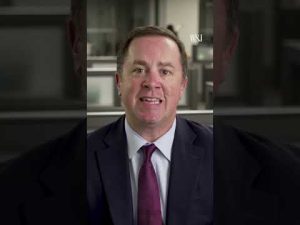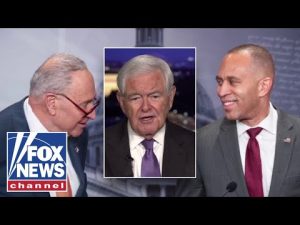In a landmark moment that could very well shift the tone of political discourse, Pete Hegth showcased a newfound maturity and confidence in his role as a leader. Just recently, he faced an audience composed of generals and political figures who, let’s just say, had reservations about his presence in the room. The atmosphere was thick with skepticism, as these individuals have long held differing views about his qualifications, or lack thereof, and about the direction of national policy. However, in a surprising twist, Hegth rose to the occasion and delivered a 45-minute address that was not only impactful but also unexpected—entirely without a teleprompter.
This wasn’t just a speech; it was a clarion call for a return to what many would argue are the foundational values of our nation. Hegth’s words struck a chord with some, while undoubtedly causing some nervous twitches among his critics. In an era characterized by what he referred to as “identity months,” an overemphasis on Diversity, Equity, and Inclusion (DEI) initiatives, and what he pointedly described as “gender delusions,” Hegth made it clear: he believes it’s time to refocus on more pressing matters. He boldly proclaimed a metaphoric end to what he labeled “debris,” signaling that the fluff and distractions of modern politics should be left behind.
For Hegth, this speech was not merely a performance but a declaration of priorities that many have yearned to hear for years. While it seemed that he was seemingly pulling back the curtain on the challenges the country faces, some members of his audience may have been listening hard, desperately trying to reconcile their preconceived notions about him with the strong vision he was laying out. In their minds, the concept of Hegth as a “Secretary of War” rather than a “Secretary of Defense” may have started to seem more plausible after this address.
As he articulated his perspective on national identity and core values, Hegth prompted attendees to reconsider their own beliefs and the implications of policies that have taken root in the government for too long. This wasn’t simply a dismissal of progressive agendas; it was a rallying cry for those who feel disheartened in a political landscape increasingly divided by unnecessary distractions. Perhaps for the first time, some were left thinking that Hegth might actually be onto something amidst all their skepticism.
At the end of the day, whether one agrees with him or not, it’s evident that Pete Hegth is not backing down. For supporters, this speech was a gift, an affirmation of shared values and a rejection of the norm. They feel invigorated, perhaps even rallying to his side—ready to face the intricacies of national policy head-on. Meanwhile, for critics entrenched in their views, it might have been a wake-up call, one that leaves them pondering whether those long-held beliefs can coexist in a rapidly shifting political landscape. Either way, it’s safe to say that Hegth made waves—and the conversation about the future of the nation is likely just getting started.







